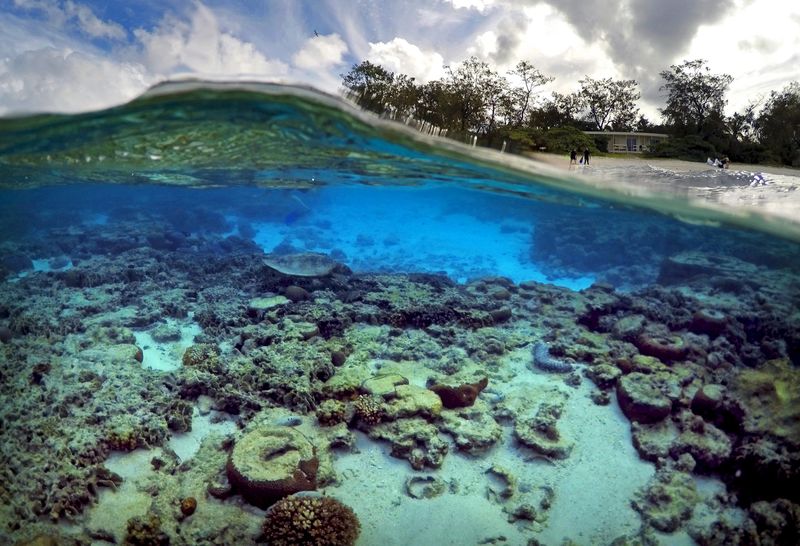Street Calls of the Week
By Colin Packham
SYDNEY, March 16 (Reuters) - Parts of Australia's Great Barrier Reef will never recover from the impact of unseasonably warm waters, scientists said on Thursday, as more of the World Heritage Site comes under renewed threat from a recent spike in sea temperatures.
Warm seas around the reef killed some two-thirds of a 700 kilometre (496.4 miles) stretch of coral last year after warm water caused the coral to expel living algae, triggering it to calcify and turn white, a process known as bleaching. That was the worst die-off of coral ever recorded at the reef. the areas that survived will not recover to full health, scientists from ARC Centre of Excellence for Integrated Coral Reef Studies said in a report, as unseasonable hot water becomes more frequent causing more incidents of bleaching.
"Given time, coral can recover from bleaching but the problem comes when you get repeated events. With less time between them, capacity for the coral reef community to recover diminishes rapidly," Janice Lough, senior principal research scientist at the Australian Institute of Marine Science, told Reuters.
The conclusion is a major blow for Australia's tourism industry, with the reef attracting A$5.2 billion ($3.9 billion) in spending each year, a 2013 Deloitte Access Economics report estimated.
Repeated damage to the Great Barrier Reef may also see UNESCO's World Heritage Committee reconsider its decision in 2015 not to put the Great Barrier Reef on its "in danger" list.
Academics said the findings demonstrate the urgency in tackling climate change, which climate scientists argue occurs when increased carbon dioxide in the atmosphere is trapped by heat radiating from earth.
The outlook for the Great Barrier Reef has further darkened with evidence of an unprecedented second consecutive bleaching event this year, researchers at James Cook University said.
Unseasonably warm waters threatens to cause bleaching of the central region of the Great Barrier Reef, which avoided the large-scale damage from the bleaching in 2016.
"We're hoping that the next two to three weeks will cool off quickly, and this year's bleaching won't be anything like last year," said Terry Hughes, director of ARC Centre of Excellence for Coral Reef Studies.
<^^^^^^^^^^^^^^^^^^^^^^^^^^^^^^^^^^^^^^^^^^^^^^^^^^^^^^^^^^^ Map of Australia's Great Barrier Reef
http://tmsnrt.rs/2gCOveK Rising sea temperatures at the Great Barrier Reef
:http://tmsnrt.rs/1TQIbzw
^^^^^^^^^^^^^^^^^^^^^^^^^^^^^^^^^^^^^^^^^^^^^^^^^^^^^^^^^^^>
